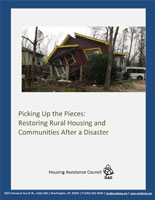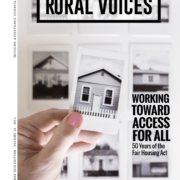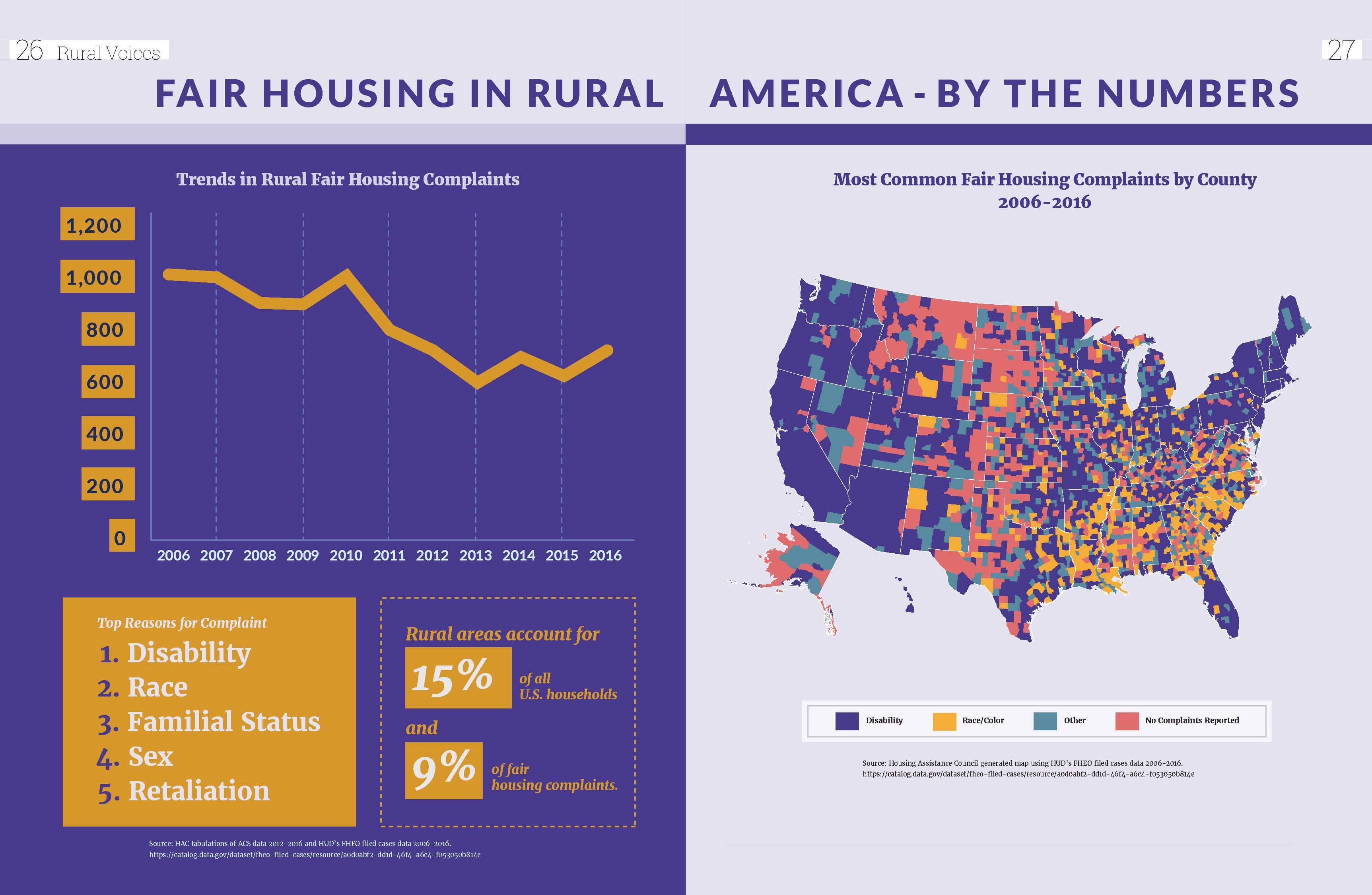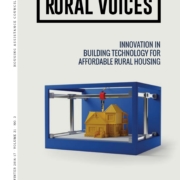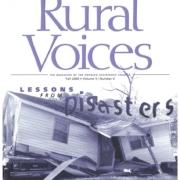News Formats. pdf
October 7, 2019
Vol. 48, No. 20
President signs continuing resolution to keep government open • Rural rental preservation bill re-introduced along with others • HUD announces DDAs and QCTs for FY20 • USDA updates environmental policies and procedures • Newspaper ads for domestic farmworkers replaced by online job registry • Duty to Serve listening sessions scheduled • Factsheets on disaster housing recovery • Iowa Free Land Giveaways Can be Imperfect Fix for Rural Housing Shortage • Measuring and Understanding Home Repair Costs: A National Typology of Households • New Financing Options for Affordable and Attractive Factory-Built Homes • Silicon Valley in Iowa: Congressman’s Fight for Tech Jobs in Rural America • The Value of HMDA Coverage of Home Lending in Rural Areas and Indian Country • HAC training for housing counselors set for November in Tampa • Need capital for your affordable housing project?
HAC News Formats. pdf
October 7, 2019
Vol. 48, No. 20
President signs continuing resolution to keep government open.
On September 23 President Trump signed into law a continuing resolution, H.R. 4378, to fund the federal government through November 21. A disagreement over funding for the border wall – the issue that led to last year’s lengthy shutdown – is expected to arise again as Congress and the Administration try to resolve differences on full-year appropriations. Congress is in recess October 1-14.
Rural rental preservation bill re-introduced along with others.
Sen. Jeanne Shaheen (D-NH) has introduced S. 2567, the Rural Housing Preservation Act, which would expand availability of vouchers for USDA tenants in properties leaving the Section 515 or 514/516 portfolios, allow Section 521 Rental Assistance to continue for tenants in properties whose mortgages have matured, establish uniform standards for transfers involving Low Income Housing Tax Credits, and authorize the MPR program. The measure has been introduced in previous Congresses in both the House and Senate, although it has not yet been taken up by either house. Sen. Shaheen also introduced a bill encouraging manufactured home park owners who are interested in selling their property to sell to their residents, and another that would terminate FHA mortgage insurance payments when the loan balance reaches 78% of the home’s value.
HUD announces DDAs and QCTs for FY20.
Difficult Development Areas and Qualified Census Tracts, calculated every year, are used to target Low Income Housing Tax Credits.
USDA updates environmental policies and procedures.
USDA Rural Development published a direct final rule on November 23, 2018 to update its environmental policies and procedures, but did not put it into effect because some adverse comments were submitted. A September 23, 2019 notice makes the rule effective as of that date, giving the RHS, RBS and RUS administrators some flexibility to obligate funds for infrastructure projects – including broadband, electric, water and sewer – before environmental review is completed, conditioned on the full and satisfactory completion of environmental review. For more information, contact Edna Primrose, USDA RD, 202-720-0986.
Newspaper ads for domestic farmworkers replaced by online job registry.
The Labor Department is eliminating the existing requirement for most employers who want to hire H-2A farmworkers to first advertise their job opportunities in print newspapers. Instead of requiring them to run ads online, as it first proposed, DOL will instead post these jobs on its electronic job registry, seasonaljobs.dol.gov, effective October 21, 2019. For more information, contact Thomas M. Dowd, DOL, 202-513-7350.
Duty to Serve listening sessions scheduled.
As Fannie Mae and Freddie Mae develop plans to carry out their 2021-23 duty to serve underserved markets such as rural America, the Federal Housing Finance Agency has scheduled listening sessions between Nov. 19 and Dec. 11 in St. Louis, Los Angeles, Washington, DC and online in order to get public input. Details and registration are online.
Recent publications and media of interest
- Factsheets on disaster housing recovery from the National Low Income Housing Coalition’s Disaster Housing Recovery Coalition describe the housing impact of the largest disasters from 2017 and 2018 as well as major failures and deficiencies in disaster recovery efforts afterward.
- In Iowa Free Land Giveaways Can be Imperfect Fix for Rural Housing Shortage describes the challenges involved as, in an effort to overcome an aging housing stock and encourage new housing construction, at least four rural Iowa communities are experimenting with land giveaways to spur development.
- Measuring and Understanding Home Repair Costs: A National Typology of Households, published by the Federal Reserve Bank of Philadelphia and PolicyMap, calculates housing quality problems taking into account the cost of the repairs needed. The authors estimate that extremely low-income households in single-family units typically have the costliest repair needs, totaling $50.8 billion in 2018.
- New Financing Options for Affordable and Attractive Factory-Built Homes suggests modular and manufactured housing can help solve the affordable housing shortage in rural areas. As opposed to stick-built housing built on-site, manufactured and modular housing is factory-built and delivered to the site, saving time and money.
- Silicon Valley in Iowa: Congressman’s Fight for Tech Jobs in Rural America describes an effort involving several large tech companies to bring jobs and job training to Jefferson County, Iowa. Spearheaded by Rep. Ro Khanna (D-CA), the program would create software development education and training opportunities through local community colleges and also involve the commitment to local job creation from large tech firms.
- The Value of HMDA Coverage of Home Lending in Rural Areas and Indian Country, a working paper from the Center for Indian Country Development at the Federal Reserve Bank of Minneapolis, notes that the Home Mortgage Disclosure Act applies to a wide range of financial institutions involved in home lending, but many small and nonmetropolitan lenders are exempt from reporting. The research analyzes data coverage and identifies some limitations but concludes HMDA data is a useful and important source of information about lending in Indian Country and rural areas.
HAC training for housing counselors set for November in Tampa.
HUD’s final rule on new certification requirements for housing counselors requires that by August 1, 2020 counseling for or in connection with any HUD programs, must be provided by HUD Certified Housing Counselors. Get ready! Elevate your knowledge in the six essential competency areas, including financial management, housing affordability, homeownership, avoiding foreclosure, tenancy and fair housing. Set yourself up for success in meeting HUD’s counselor certification requirements by starting your prep with this three-day course scheduled for Tampa, FL on November 12-14. The registration fee is $500. For more information, contact HAC staff, 404-892-4824.
Need capital for your affordable housing project?
HAC’s loan funds provide low interest rate loans to support single- and multifamily affordable housing projects for low-income rural residents throughout the U.S. and territories. Capital is available for all types of affordable and mixed-income housing projects, including preservation, farmworker, senior and veteran housing. HAC loan funds can be used for pre-development, site acquisition, site development and construction/rehabilitation. Contact HAC’s loan fund staff at hacloanfund@ruralhome.org, 202-842-8600.
Please note: HAC is not able to offer loans to individuals or families. Borrowers must be nonprofit or for-profit organizations or government entities (including tribes).

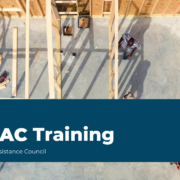
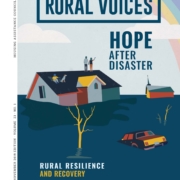 HAC
HAC
